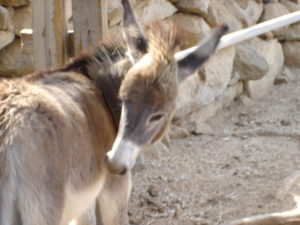
 When I lived in Idaho, visits to the gardens of my friends in warmer climates used to arouse a familiar emotion in me: garden envy. Seeing the colorful bougainvillea, inhaling the delectable scent of roses already in bloom, hea
When I lived in Idaho, visits to the gardens of my friends in warmer climates used to arouse a familiar emotion in me: garden envy. Seeing the colorful bougainvillea, inhaling the delectable scent of roses already in bloom, hea ring my friends speak of trips to the nursery for plants that could not grow in frosty Idaho, roused my envy. I reminded myself that in our climate zone, we greeted with fresh eyes the first flowers of spring: the snowdrops, crocuses (croci to some), forsythia, lilacs, and dogwood, for example. And yet still I suffered.
ring my friends speak of trips to the nursery for plants that could not grow in frosty Idaho, roused my envy. I reminded myself that in our climate zone, we greeted with fresh eyes the first flowers of spring: the snowdrops, crocuses (croci to some), forsythia, lilacs, and dogwood, for example. And yet still I suffered.
What might this have to do with words?
I wondered if I envy my friends’ gardens or if I am jealous of them. A bit of research told me I was envious of their gardens, but only in one of its definitions: longing for someone else’s good fortune. I do not envy or yearn for the hard work involved in nurturing their gardens.
In a thought-provoking 2003 article in Washington Monthly, “The Green-Eyed Monster,” Joseph Epstein finely and perceptively tunes the definition of envy. He distinguishes envy from jealousy by stating that one is jealous of what one has, envious of what other people have. I found Epstein’s distinction much clearer than others that state jealousy has to do with romantic love.
Epstein proposes that envy is the worst of the seven deadly sins because it implies pettiness. It is a deeply personal sin, hard to shake off.
Epstein cites the Oxford English Dictionary (OED) definition of envy: “‘the feeling of mortification and ill-will occasioned by the contemplation of superior advantages possessed by another,’” in which usage the word envy first pops up around 1500. The OED added, writes Epstein, “a fourth definition, one in which the word is used without ‘notions of malevolence,’ and has to do with the ‘desire to equal another in achievement, or excellence; emulation,’ and speaks to ‘a longing for the advantages enjoyed by another person.’”
Being jealous of one’s reputation can be justified; being envious of the fame earned by another probably cannot be. Envy often implies malice. Its roots are in the Latin invidere, meaning look at with malice, or cast an evil eye on. It shares its roots with invidious, an adjective meaning tending to cause discontent, resentment or envy.
Again I quote Epstein: “Dorothy Sayers, in a little book on the seven deadly sins, writes: ‘Envy is the great leveler: if it cannot level things up, it will level them down. At its best, envy is a climber and a snob; at its worst it is a destroyer—rather than have anyone happier than itself, it will see us all miserable together.’”
Epstein distinguishes envy, specific and personalized, from admiration, and from yearning: a generalized desire to have something seen in others: youth, beauty, wealth, grace. We might pine for the social skills or the creativity of others. When we wish they did not have it, or think it unjust that they have what we do not, that is the essence of the ugliness of envy.
Epstein states there ought to be a word that falls between envy and admiration. Envy is secretive, admiration is open. Envy connotes malice; admiration connotes love and appreciation.
I so admire the gardens of my friends.
I also confess to envying the success of other authors, but work hard to transform that envy into admiration of their hard work and their success and appreciation of the results of that work. How about you? Any gardens you wish were yours? Books you wish you’d written?

